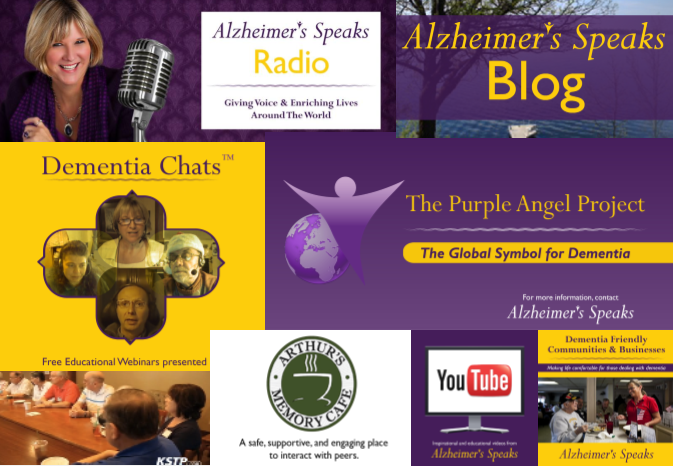Holistic Exercise Benefits Dementia Patients and Carers Alike
Holistic Exercise Benefits Dementia Patients and Carers Alike
A freelance post written by Helen Gooch
Numerous studies have shown that regular physical activity is vital for the elderly, especially in so far as maintaining and improving strength, endurance, balance and flexibility are concerned. Exercise also plays a vital role in preventing and delaying the onset of Alzheimer’s and other dementias. Some studies have shown that exercise can delay further progression in those who are already suffer from dementia, while others have revealed that physical activity which involves mindfulness (especially as it relates to a greater awareness of the body) and functional movement, can improve cognitive function in patients and help the carers of these patients, to deal with stress. Often, carers are family members who can find it difficult to see the decline in their parents/older relatives. Moreover, being a primary carer can involve great sacrifice, and can at times seem overwhelming.
Specific exercises like yoga have shown to promote better physical and mental well-being in patients with dementia, but these practices are also highly beneficial to carers, since yoga has been proven to reduce levels of stress hormone, cortisol, through its focus on mindfulness and controlled breathing. It is no wonder that yoga is used not only to help patients with dementia, but also those recovering from serious diseases like breast cancer, atherosclerosis, etc. In patients with dementia, yoga has been found to lower blood pressure, reduce dementia-related problems and reduce symptoms of depression.
A new study carried out in the UK shows great promise in terms of the important role holistic exercise can play in helping patients and their carers. According to the study authors, holistic exercise “combines physical exercise with the wellness approach where multi-dimensional factors are taken into consideration, and which includes physical, emotional, intellectual, social, environmental and spiritual dimensions.” The concept of wellness takes an integrative approach to health, placing due importance on sound nutrition, support from loved ones, regular physical activity, getting a good night’s sleep, etc. Before this study, little research had been carried out into the effects of a holistic exercise program on the physical and mental wellbeing of patients and carers.
The study saw 15 persons (eight with early- to middle-stage dementia, five carers and two volunteers) take part in a program called ‘Happy Antics’, which involved attending holistic exercise sessions once a week for six weeks. The sessions combined traditional physical exercise with yoga, meditation, qigong, dance, tai chi and dance. They also involved stretching and bending (two movements which can easily be adapted to each person’s individual abilities). Cognitive exercises were additionally included as part of the session: participants with dementia were shown an image, which the instructor spoke briefly about, entertaining questions and a short discussion afterwards.
After six weeks, participants were interviewed about the sessions. The feedback was highly positive: all (patients and caregivers alike) reported that they had enjoyed the sessions. Some said they felt relaxed, with an enhanced sense of wellbeing, and all said they enjoyed the social aspects of the sessions. Those with dementia said they enjoyed the chance to be physically active. Pain relief, the chance to enjoy a new and different activity and the emphasis on self-growth rather than self-improvement or perfection, were added bonuses of and holistic program for various participants.
Although the study was small, it holds great promise for the value of approaching dementia and caring for those with this disease, from an integrated perspective. Another study carried out in 2013 came to similar findings. The earlier study involved an exercise program called Preventing Loss of Independence from Exercise (PLIÉ). For 18 weeks, those with early- to middle-stage dementia combined Western and eastern techniques, including yoga, tai chi, physical therapy, occupational therapy, dance, etc. The researchers found that the program encouraged participants to communicate better and enhanced their cognitive abilities. It is hoped that larger studies will soon confirm these important findings.
Y.J. Khoo, The Happy Antics programme: Holistic exercise for people with dementia. Journal of Bodywork and Movement Therapies 2014. 18(4).
A Adelman, Initial Evaluation of the Patient with Suspected Dementia. American Family Physician. 2005. 71(9):1745-50.
E Aguirre, Maintenance Cognitive Stimulation Therapy (CST) for dementia: A single-blind, multi-centre, randomized controlled trial of Maintenance CST vs. CST for dementia. Trials. 2010. 11:46.
D Barnes, Preventing Loss of Independence through Exercise (PLIÉ): An Integrative Exercise Program for Individuals with Dementia. Neurology. 2013. 80 (Meeting abstracts 1):S24.007
Dr.oz.com, Three New Ways to Prevent Alzheimer’s, accessed November, 2014.
Drweil.com, Azheimer’s Disease, accessed November, 2014.
S Horowitz, Exercising the Body and Mind to Improve Age-Related Mental Function. Alternative and Complementary Therapies 2006. 12(5):222-27.
For Additional Resources on Dementia & Caregiving
Click Below
Enjoy the Holidays with Wonderful Music
that has Specialized Technology to Help
Dementia Engagement




Great article – thanks so much. I’ve reposted it on my FB page 🙂
Thanks Susan. Glad you liked the article!
Lori